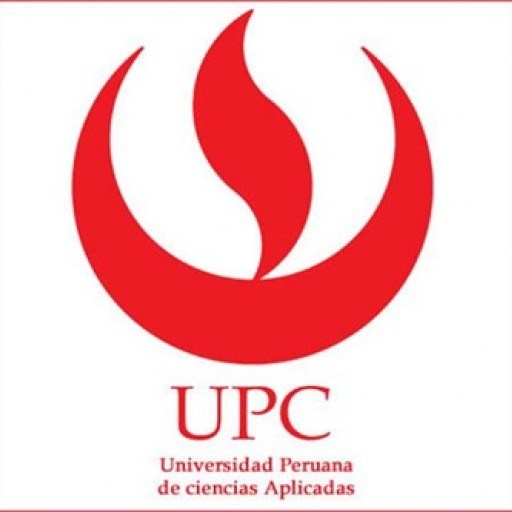Advertisement
Because the application of ICTs continues to expand in a growing number of industries, universities need to produce graduates who can take on technological leadership roles in this process. The master's degree in Telecommunication Engineering and Management (MASTEAM) to plan complex multidisciplinary projects and create new technologies, to master the most advanced technologies, to broaden the use of existing technologies by creating new fields of application and to provide advice to sectors that do not have a long tradition in the use of telecommunications, such as small and medium-sized businesses, the government and society at large.
There are two possible areas of specialisation: Telecommunications Networks and Services, and Telecommunications Policies and Business Management. The programme also offers a research track towards a European doctoral degree.
Professional opportunities Graduates of this masters degree will be experts in designing, developing and managing telecommunications projects. They can also work in the creation of innovative products, systems and procedures in accordance with regulations and environmental guidelines. They will also be able to pursue advanced research careers in international R&D divisions.
On finishing the master's degree, graduates will be able to:
Transversals competencies
Transversals competencies are those things that the graduate will be able to understand or do upon completion of the learning process, regardless of the specific course. The transversals competencies established by the UPC are: capacity for innovation and entrepreneurship, sustainability and social commitment, knowledge of a foreign language (preferably English), teamwork and proper use of information resources.
* Plan, design, develop and manage technologically feasible telecommunications projects and plans, based on the need to create or innovate an optimum and appropriate product or process in accordance with certain regulatory, environmental and cost guidelines.
* Prepare or evaluate a feasibility plan for the development of a product or service for a company.
* Be familiar with trends in the telecommunications market, laws and guidelines set by various organisations, existing standards and recommendations, current ICT trends, and their impact on social, economic and cultural development.
* Carry out advanced research not just in national R&D departments, but also with a strong relationship with international research.
* Direct and lead research groups.
Syllabus
The curriculum is broken down into four semesters: 1A, 1B, 2A and 2B. Total students' workload is described in ECTS credits (European Credit Transfer System). One credit amounts to 25 hours, and one full semester 30 cr.
HPre: Weekly classroom/lab hours
HPro: Weekly project hours
(*) Select a course for detailed information
4A
Wired Data Network
(15 ECTS)
Wireless Communication Systems
(15 ECTS)
Teamworking and Project Design1AECTS ECTS ECTS ECTS ECTS ECTS 4.5 3.5 7 4.5 10.5 0.7 Optical and Cable Communications
Network, Systems And Communication Services (I)
Wired Data Networks Project Radiation and Radiocom. Wireless Communication Project Teamworking and Project Design HPre HPre HPro HPre HPre HPro 4 3 6 4 8 4B
Networks Systems and Services
(15 ECTS)
Electronic Circuits Systems and Measuring Equipment
(15 ECTS)
1BECTS ECTS ECTS ECTS ECTS ECTS 4.8 3.6 6 5 5 5 Networks, Systems and Com. Services
Computer Networks
Network Management Project Digital Signal Processing Electronic Instrument. Electronic Instrument. and Systems Project CLAB CLAB CLAB CLAB CLAB CLAB 4 3 5 4 3 5 SPECIALIZATION: Telecommunication Services and Networks SPECIALIZATION: Telecommunicaction Policies and Business Management 5AManagement and Society
(7.5 ECTS)
Management and Society
(7.5 ECTS)
2AECTS ECTS ECTS ECTS 3 4 3 4 Resource Management and Administration Engineering and Society Resource Management and Administration Engineering and Society CLAB CLAB CLAB CLAB 3 4 3 4
Networks and Application Design
(15 ECTS)
Bussines Start-Up
(15 ECTS)
ECTS ECTS ECTS ECTS 4.5 10.5 4.5 10.5
Design of Services and Applications
Networks Design Project Enterprise Creation Business Stat-Up Project CLAB CLAB CLAB CLAB 4 9 4 9
Network Management and Service Planning
(7.5 ECTS)
Project Management and Innovation
(7.5 ECTS)
ECTS ECTS ECTS ECTS 3.75 3.75 3.75 3.75
Service Planning
Network Management Project and Directive Abilities Management Innovation Sequence CLAB CLAB CLAB CLAB 3 3 3 3 . . 5BOptional CoursesOptional Courses2B ECTS ECTS 11.5 11.5 Optional Optional Optional Optional Optional Optional Master Project Master Project ECTS ECTS 18 18 Master Project Master Project
* Optional Courses
Telecommunication Policies Electronic Administration and e-commerce Research Seminar Practical training in a company (between 180 and 450 hours) Practical training in a research laboratory (between 180 and 450 hours) Other courses choosed in accordance with student's mentor
* Research and Doctorate orientation.
The professor being the director of the research activity of the student will orient him/her to specific courses related with his/her PhD, between a wide range of courses organized by EETAC, several departments, research groups and research institutes at the Campus.
